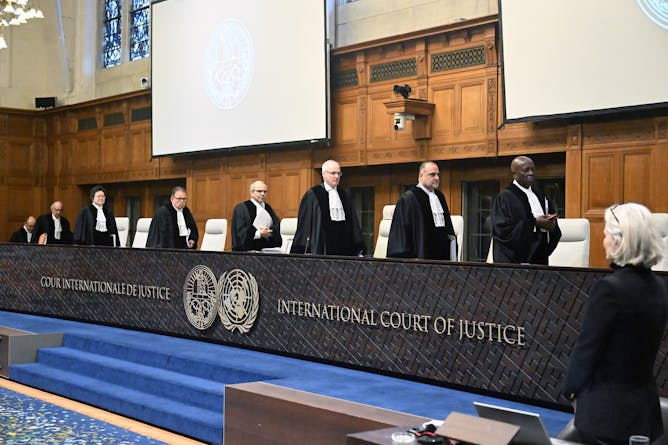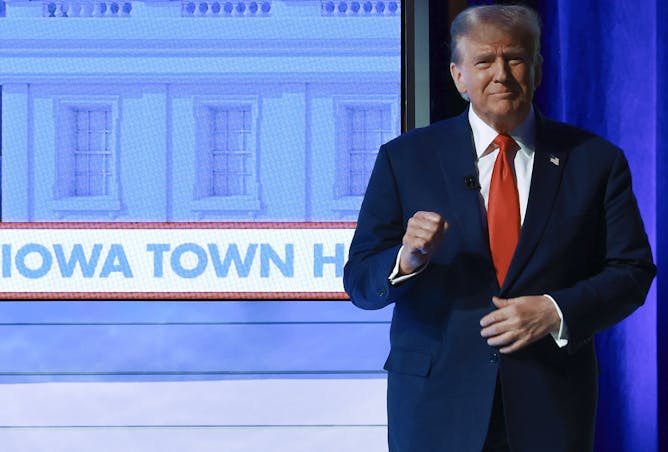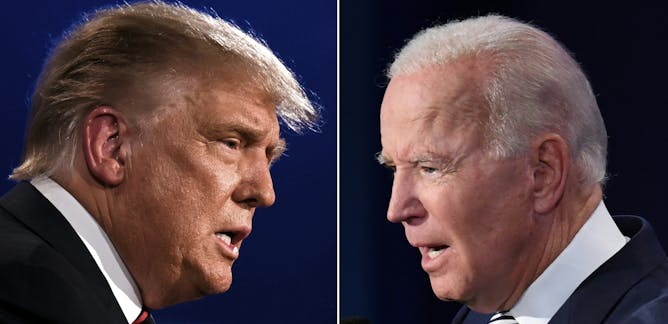|
Far from Gaza, the Netherlands-based International Court of Justice is now considering South Africa’s claim that Israel committed genocide against Palestinians. Israel is defending its military operation in Gaza, saying that it did not intentionally kill Palestinian civilians, but rather that their deaths were an unfortunate consequence of war.
The seriousness of a genocide charge doesn’t mean that the International Court of Justice will speed up its legal process, explains Victor Peskin, an international relations and human rights scholar at Arizona State University. It has typically taken this court years to deliver a verdict on genocide cases. And regardless of how the court eventually rules, it is impossible to actually enforce its verdicts.
“It’s always an open question – will an International Court of Justice ruling even be enforced and have any tangible effect?” Peskin explained in an interview with me last week.
But that’s not to say the court and its 15 judges from around the world are powerless. Peskin explains in this week’s lead story how, in the past, the court has applied political pressure to help end conflicts.
|

Judges take their seats prior to the hearing of Israel’s defense at the International Court of Justice on Jan. 12, 2024.
Dursun Aydemir/Anadolu via Getty Images
Victor Peskin, Arizona State University
While the International Court of Justice lacks enforcement powers, it can issue orders that could heighten international pressure on Israel to curtail some of its offensive in Gaza.
|

Republican presidential candidate Donald Trump appears at a Fox News town hall in Des Moines, Iowa on Jan. 10, 2024.
Joe Raedle/Getty Images
Stephen J. Farnsworth, University of Mary Washington
The Iowa caucuses have long been an oddity in modern-day politics but remain a place where GOP candidates can test their presidential aspirations.
|

Ecuador looks set to entrust its anti-gang fight to the military.
Franklin Jacome/Agencia Press South/Getty Images
Eduardo Gamarra, Florida International University
Widespread violence tied to Ecuadorian drug gangs has left the country looking at a draconian response.
|
|
|

Shawn J. Parry-Giles, University of Maryland; David Kaufer, Carnegie Mellon University
Nikki Haley is the latest American female politician to shift her language, depending on whom she is talking to and where. But this tactic has a flip side, prompting criticism of her as inconsistent.
| |

Timothy Hagle, University of Iowa; Stephen J. Farnsworth, University of Mary Washington
From the ‘static’ polls to Trump’s ‘dissing’ of voters, two political scientists look at the Iowa caucus and see more than just the fact that Trump won it, resoundingly.
|

Laura A. Henry, Bowdoin College
More than six years after Pavel Sulyandziga, an Indigenous activist from Russia, left the country to seek political asylum in the US, he continues to face harassment by the Russian government.
| |

Jordan Cash, Michigan State University
Biden and Trump are polar opposites when it comes to policy. But they have wielded the power of the presidency in similar ways.
|
|
|
|
|
-
Alemayehu Weldemariam, Indiana University
Somalia has demanded that a memorandum of understanding – which would see Ethiopia gain access to the Red Sea via a Somaliland port – be ripped up.
-
Taylor Scott, Penn State
Researchers want real-world impact. Lawmakers want programs that work. The public wants to benefit from taxpayer-funded research. Building a bridge from academia to legislatures is key to all three.
-
Barbara A. Trish, Grinnell College
In Iowa, the Ron DeSantis super PAC Never Back Down seemed intent on mocking the dividing line federal regulators set between campaigns and the PACs that support them.
-
Mahad Darar, Colorado State University
The raid follows warnings from Washington to cease attacks in the Red Sea − but it could serve to strengthen rebels and reignite civil war.
|
|